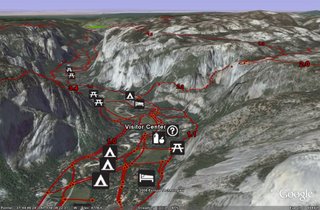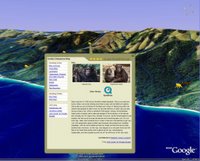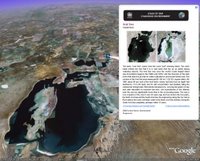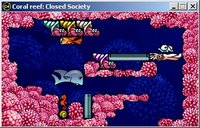Posted by David Eun, VP, Content PartnershipsThe Internet has broken down many of the barriers that exist between people and information –- effectively democratizing access to human knowledge. By typing just a few keywords into a computer you can learn about almost any subject. Google is one of many organizations that work to make this possible.
But today only a fraction of the world’s information is available online. Our aim to help organize the world’s information and make it universally accessible and useful means working with a lot of information – newspaper articles (many written over a century ago), books (of which there are millions), images, videos (including all of the new footage users are creating), websites, important financial information and much, much more.
Because we don’t own this content, over the years we’ve come up with three primary principles to ensure that we respect content owners and protect their rights:
- we respect copyright;
- we let owners choose whether we index their content in our products;
- we try to bring benefit back to content owners by partnering with them.
Respecting copyrightThere are many legal rights that help protect content. Among the most important is copyright. Content creators deserve to be rewarded for their creative work -- and copyright law is fundamental to ensuring that as well as fostering future creativity. While protecting the rights of owners, those laws also encourage others to make use of content in limited ways. That's why newspapers are allowed to include short quotations from in-copyright books in their reviews. That's also why search engines can show snippets (small excerpts) of text in their results. Copyright owners benefit from these types of usage because they help to publicize their works.
Google News is a good example of how Google protects copyright in practice. We index the content of thousands of news sources online. When users go to Google News, they see only headlines, snippets and image thumbnails from the relevant news articles. If people want to read the story, they must click through links in our results to the original website.
Google Book Search is another example. We're digitizing and indexing millions of books as part of our effort to make these works as easily found as web sites are today. Some of these books are in the public domain. For those, we will show the full text of the book. Other books are in copyright. For these we show only bibliographic information and a few snippets of text, unless we have the owners’ prior permission to show more.
There are also times when, in addition to securing permission, we pay for greater use of content. For example, we've agreed to pay the Associated Press (AP) for the right to make new uses of its news content – uses that go beyond the limited uses permitted by copyright laws. This use of AP’s content will make our services even more valuable. We also license content from third parties for several other Google services such as
Google Earth Google Finance and
Google Maps.
Letting content owners chooseEven if use of their work would be perfectly legal, we respect the wishes of content owners. For example, if a content owner asks us to remove his or her content from our web search results, we do. If a newspaper does not want to be part of Google News, we take the paper’s stories out. And if publishers would prefer not to have their books included in Google Book Search, we honor their request. It’s simple: we always allow content owners to opt out – quickly and easily.
Of course, some people argue that we should be asking content owners to opt in, not requiring them to opt out. Google aims to provide comprehensive search results. This would be impossible in a world where permission simply to index (which is entirely legal) was necessary. But we also believe that opt-out rather than opt-in benefits not just Google users, but also content owners. If content isn't indexed it can't be searched. And if it can't be searched, how can it be found? Imagine a library with no index of titles or subjects of the books on its shelves, or no catalogue of the authors who wrote them.
Benefitting content ownersThere are around one billion people online today -- all of them wanting access to information. We partner with publishers, news organizations and others to help them to reach a wider global audience. By enabling people to discover information, Google drives web traffic, customer queries, advertising revenues and sales to our partners, both online and offline.
Take our
AdSense advertising program. We display ads on thousands of partners’ websites – and we let them keep the majority of the revenue generated. The same is true for our Book Search publisher partners – they keep the lion’s share of the advertising on the books they include in our program. And
Google Video helps media companies generate revenues in a number of different ways. They can upload their videos and share them freely with millions of users globally, generating awareness for their content – and some may sell their videos through our online store. We also place ads within videos on Google Video and throughout our AdSense network through a new product called Adsense for Video -- and as with AdSense and Book Search, we share the money with the content owner.
And we have other initiatives to help our partners sell their content. In Google News, we work with some companies whose content is only available via subscription. We index their content and then when people click on their story we link them to the site where they can purchase the individual story, login if they are a subscriber, or subscribe to the paper. And we recently added a feature to Google News which enables searchers to find historical articles, many of which are only available from the owner for a fee.
Protecting content owners’ rights, respecting their wishes, helping to reward them for their creative endeavors – these are the primary principles that guide Google’s approach.
We believe it’s the best way to make the world’s information universally accessible and useful.

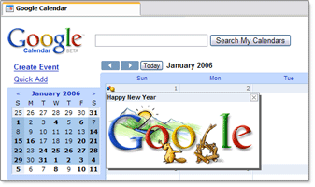



 In our September installment, follow the daily exploits of "Flirt" and her kindred Tanzanian chimpanzees in The Jane Goodall Institute's "geoblog"; fans have called this a "
In our September installment, follow the daily exploits of "Flirt" and her kindred Tanzanian chimpanzees in The Jane Goodall Institute's "geoblog"; fans have called this a "